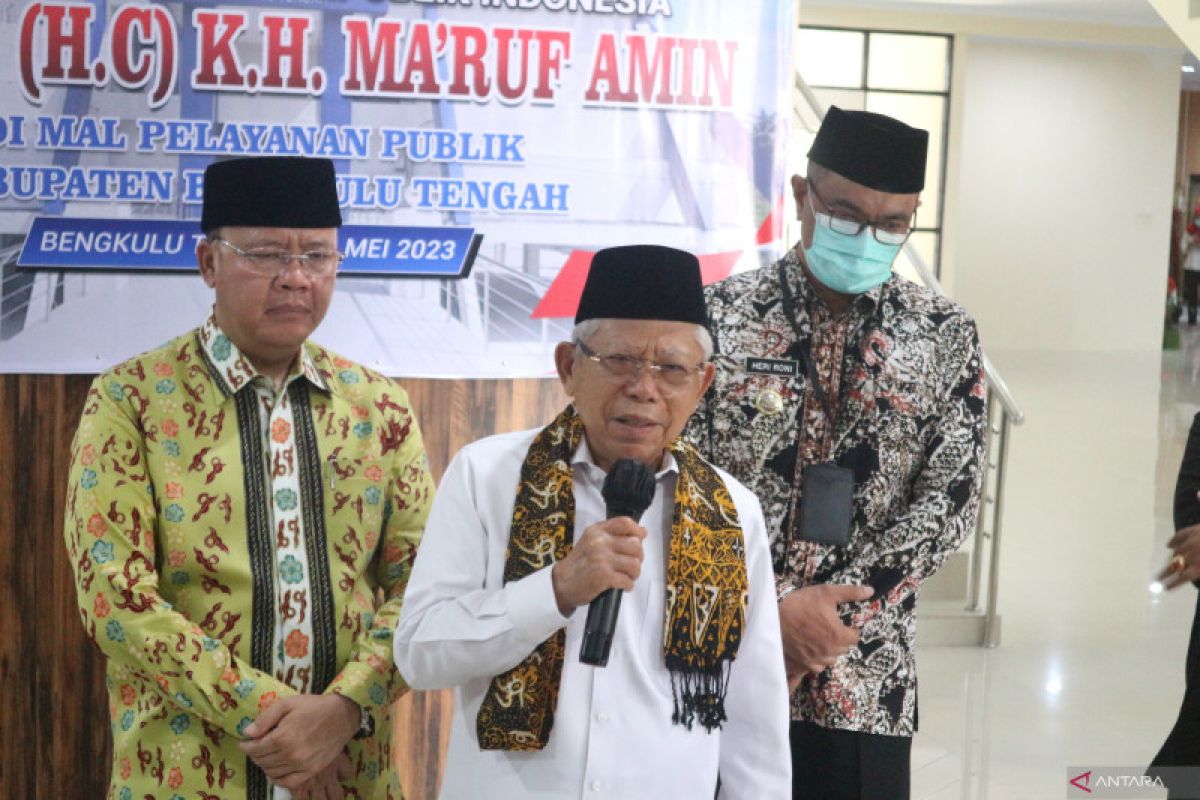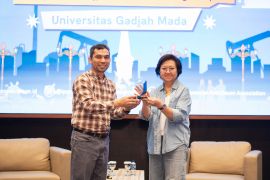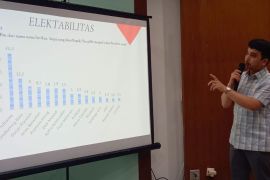Bengkulu (ANTARA) - Vice President Ma'ruf Amin has asked all related agencies and institutions, including in Bengkulu province, to improve coordination to reduce stunting prevalence in their respective regions.
"
Sometimes, there is a lack of coordination between agencies, seems that they work by themselves. For instance, I see in some regions that they (agencies/institutions) do not synergize with each other," he highlighted here on Thursday.
“(Hence) we should improve the synergy among institutions,” Amin, who is also serving as the chairperson of the Steering Committee for the Acceleration of Stunting Reduction, added.
According to the 2021 Indonesian Nutritional Status Survey (SSGI), about 1 in 4 Indonesian toddlers is stunted.
Amin stated that his administration has continued to verify which regions are experiencing an increase in stunting prevalence and identify the causes behind it, for instance, early marriage.
Later, the government will take action to address the causes of the increasing stunting rate, he continued.
"I have conducted a number of inspections to obtain (direct) reports, and we will adjust our stunting reduction action plan (based on the findings in the field)," he informed.
The Vice President said he expected the prevalence of stunting in Bengkulu province to dip below 10 percent by 2024.
"Still, maybe there will be (regions whose stunting prevalence rate will remain) above 14 percent by 2024, although, according to our consideration, the 14 percent (rate) can be achieved (nationally) through various breakthroughs implemented by each province," he added.
Governor of Bengkulu, Rohidin Mersyah, said that the stunting rate in the province fell 4 percent to 18 percent in 2022 from 22 percent in 2021. Meanwhile, in Bengkulu city, the rate declined 9.3 percent to 12.9 percent in 2022 from 22.2 percent in 2021.
He stated that currently, his administration is verifying that the data used to address the stunting problem in each district and city in the province is compiled by name, by address, and by picture.
"Furthermore, we will look for the main causes of stunting and create intervention plans for handling stunting from both upstream and downstream sectors,” the governor continued.
He informed that the intervention attempts in the upstream sector involve addressing the causes of stunting, such as early marriage, while the interventions in the downstream sector involve providing assistance to stunted babies and children.
Baca juga: Expect Indonesian entrepreneurs to script social change
Baca juga: New Papuan provinces to get funds from 2023 budget
“Thus, we carry out cross-sectoral coordination, including with the military and police, such as by implementing the Kitchen Visit Program," he added.
Pewarta : Desca Natalia, Uyu Liman
Editor:
I Komang Suparta
COPYRIGHT © ANTARA 2026









